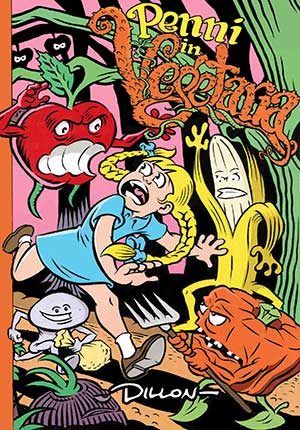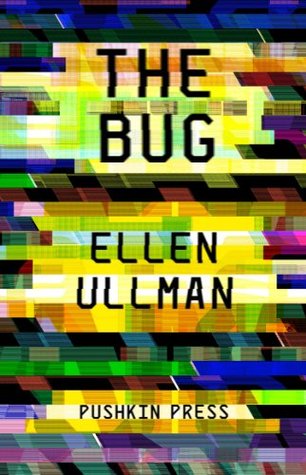 Bitcoin (as conceived by the vaguely Galt-like figure of Satoshi Nakimoto) was supposed to be the next evolution of money. What were the earlier evolutions?
Bitcoin (as conceived by the vaguely Galt-like figure of Satoshi Nakimoto) was supposed to be the next evolution of money. What were the earlier evolutions?
Once, money didn’t exist, and nobody needed to it exist. Early man was apparently a fission-fusion society, with all of its members able to provide the means of their own survival.
Then our brains grew bigger, our toolmaking more sophisticated, and a problem emerged: some new skills took a long time to learn. It was no longer possible for one person to be good at everything. We began to specialise – some dug storage pits, some wove nets, some fashioned spears. Humanity went from being freestanding pylons to a truss-frame bridge, each member relying on the other members to not fall down.
We began to trade our skills, establishing the first economy. Contrary to common belief, there isn’t much reason to think early man made use of a “barter” economy, with goods traded directly for other goods. The more common scenario was likely a economies based on gift-giving (as is seen in hunter gatherers today). Either way, with lots of gifts, and lots of giving, everyone received what they need.
But barter and gift based economies have a weakness: some things can’t be easily swapped or traded. If I make hats and you make houses, how are we supposed to transact? Do I get a house and you get a hundred hats? Do you get a hat and I get a half a retaining wall? Suppose you can’t begin building my house for six weeks, when the weather improves, but you want your hat right now? Is there any way we can conduct business?
Yes, but first we need a way of storing value. Suppose we take all the pebbles from a beach, and distribute them evenly among the tribe. If I make you a hat, you give me a pebble. If you build me a house, I give you a hundred pebbles. If you can’t build my house for six weeks, then I have assumed risk (you might not build the house), so maybe you’ll agree to only take eighty pebbles as payment for your work. Skilled and valuable people will be rewarded with lots of pebbles (proxies for hats, and houses, and fish). If your supply runs low, then perhaps it’s a sign that you’re taking more from the tribe than you are giving.
The system works so long as there are a fixed number of pebbles in circulation. It breaks down instantly if I walk further down the coast, discover a new beach nobody knows about, and put hundreds of pebbles in a wheelbarrow. Now my store of pebbles no longer matches my input of labor to the tribe. The market is distorted, people will lose faith in it, and the stability goes away. Maybe a fish is worth one pebble, maybe a thousand.
The requirements of money are manifest: it must be rare, hard to fake, and testable. In other words, you have to be able to trust it.
Money in the United States is issued by the Federal Treasury, and has sophisticated anti-counterfeiting measures, including a 3D security ribbon, a pair of matching serial numbers, and a watermark visible under UV light. It is hard to copy. I’m reminded of how Egyptian pharoahs would engrave their accomplishments on limestone, and sometimes they’d chisel out the names of the old pharoahs and replace them with their own. The Ramisside Dynasty ensured against this by carving their achievements in five inches deep into the stone. Trust is the heart of everything.
For centuries, most of the world used precious metals and stones. In other parts of the world, work-based currency was used: Oliva carneola snail shells painstakingly ground down to size, and threaded through with beads. They were labour intensive to make that nobody could crash the market with sudden injections of volume.
But using physical items as money has its own problem, and it’s a sneaky one that doesn’t seem obvious at first: deflation.
Economies usually grow. This is a very predictable fact about them. Populations increase (adding extra labour input), technology improves (adding a labour multiplier) and infrastructure improves (facilitating trade). And if there’s a fixed number of snail shells in circulation, each of them becomes capable of buying more and more product.
The result? People start hoarding snail shells, because if they spend them, they’ve traded an increasingly valuable item for a flat line. The economy slows down, because not enough people are actually using the currency.
In recent centuries, most countries have passed from a metallist system (where money is backed by precious metals) to a fiat system, where pieces of paper are valuable essentially because the government has decided that they are. This allows fine-tuning, and intricate control. If the economy is deflating, the government can introduce more money.
The only issue, again, is trust. How much do you trust your government? Do you think they’ll look out for your best interests? And even if they do, how much longer do you think your government will continue to exist for?
The fiat system seems to work. The grass grows and the trains arrive on time. But it’s hard not to feel like Wile E Coyote running off a cliff into empty air.
Bitcoin was supposed to be the next evolution of money. Unfortunately, at some point this new transitional form ended up at the bottom of a tar pit. More later.
No Comments »
 Dillon Naylor is an Australian comic artist, most remembered for Da’n’Dill, which I’m uncomfortable in my ability to pronounce. It’s the verbal equivalent of a missing stair.
Dillon Naylor is an Australian comic artist, most remembered for Da’n’Dill, which I’m uncomfortable in my ability to pronounce. It’s the verbal equivalent of a missing stair.
Da’n’Dill were endemic to Australia’s mid-90s landscape. They appeared in kids’ magazines such as K-Zone, in amusement park showbags, and were syndicated in newspapers. The comic was a disease, infesting every blank piece of paper you could name. Every kid I knew seemed to read them.
The concept was a riff on Mork and Mindy‘s “aliens in suburbia”, but Naylor correctly understood that humor doesn’t come from silliness, it comes from conflict, and he changed the Mindy character into a thin-skinned, teeth-grinding nerd who was constantly having his plans ruined by the dumb, well-meaning aliens.
Naylor’s comics were funny, and seemed even funnier when you were riding a sugar high on the train home from Luna Park. There are legends about casinos that hyper-oxygenate the air to induce euphoria (and compulsive gambling) in their patrons. Naylor had a similar racket going with the under-twelve set.
Penni in Vegetaria is another of Naylor’s works. The setup is as relatable as you can get: it’s dinner time, and Penni doesn’t want to eat her greens. She hides from her parents in a pile of leaves, discovers a spaceship, presses buttons, gets whisked away to a distant planet inhabited by sentient plants, and is soon caught up in a war between rival kingdoms of fruit and vegetables. I hate it when that happens.
The story is kid-friendly, and layered with moralistic overtones. It’s never in doubt that Penny will resolve the war, and will both learn and share some lessons along the way.
But there’s also that typical Naylor subversiveness: such as a visual gag involving a WWII-style internment camp (the detainees are tomatoes, because nobody’s sure what side they’re on!)
Naylor’s art is wonderfully grotesque and expressive. Australian writers (Paul Jennings, Morris Gleitzman, and Andy Griffiths) have always excelled at making twisted and disturbing nightmare fuel that technically isn’t objectionable at all, and Penni in Vegetaria is no exception. Naylor’s specialty? Teeth. They’re huge and scary and jut out like tombstones in nearly every panel. It’s actually pretty frightening. I’ve never worried about being bitten by a comic before.
Penni in Vegetaria is printed on incredibly thin A4 pulp, which might be a result of pro-plant lobbying. It’s rather short and Naylor might have taken the concept further, if he’d had more pages (it’s a disappointment to see the fruit and vegetables fight each other with human weapons, rather than in some funny plant-based way. And I just know that Queen Broccoli was busy planning the Final Solution to the Tomato Problem.)
I’m not sure if there were more Tales from the Ovoid, or whether there’s any connection to the Da’n’Dill universe. Memory tells me that Penni is the sister of the aforementioned nerd, but a re-read revealed that this isn’t true. I also learned that only Da is an alien, whereas Dill is only a mutated parrot. It’s important to know these things.
Although it’s not quite “cult classic” status yet, Penni in Vegetaria is a neat comic, and well worth tracking down. Luna Park closed in the middle of the 90s, but then came back. Naylor’s work is overdue for a similar renaissance.
No Comments »
 Mary Shelley wrote a novel called Frankenstein, about a creation overpowering its creator. Unknowingly, she lived out the drama of her story – nothing else she wrote achieved the same fame, and her entire existence is a footnote to Victor Frankenstein. One day, Mary Shelley’s name will be spoken for the last time. Some other day afterwards, Frankenstein’s name will be spoken for the last time. The interval in between might be thousands of years.
Mary Shelley wrote a novel called Frankenstein, about a creation overpowering its creator. Unknowingly, she lived out the drama of her story – nothing else she wrote achieved the same fame, and her entire existence is a footnote to Victor Frankenstein. One day, Mary Shelley’s name will be spoken for the last time. Some other day afterwards, Frankenstein’s name will be spoken for the last time. The interval in between might be thousands of years.
Think of “Frankenstein’s monster” and what comes to mind? A shambling green Boris Karloff, with bolts sticking out of his neck? In the original book, the monster’s skin is yellow, and it has long black hair. The public’s conception of the monster changed with the years, to where it bears little resemblance to Mary Shelley’s creation.
It mutated. It evolved. Mary Shelley called it a monster. But perhaps in modern nomenclature it could be called a virus.
Ellen Ullman’s The Bug is a cyberpunk addendum to Frankenstein. A corporate programmer encounters a bug in his company’s software. This bug has a life of its own, resists his efforts to document and eradicate it, and cripples the program to the point of threatening the company’s big IPO.
At first, it’s called U-1017, as it’s the thousandth and seventeenth bug discovered in the program (although you’d think the programmers would use zero-indexing, making it U-1016). Then, matters become personal, and he calls it Jester. The fight against it takes on mythic proportions.
While he struggles against the bug, his personal life is falling to bits. His wife is unfaithful, the company is screwing him, and his neighbors play music too loud. His failure to defeat U-1017 feels like a referendum against his existence on Earth. Programming is literally the only thing he does. If he fails at that, then what’s left? He liberally comments his code with existential angst.
Ullman adds lots of interesting asides about programming, linguistics, and math. One of the book’s most interesting themes is Conway’s Game of Life: an x-y grid where cell-like automata live, breed, and die in accordance with simple rules. This is introduced as a parallel to corporate programming. There’s a brilliant typographical conceit where the beginning of each chapter contains an iteration of the Game. Clever though this is, it spoils the book. The reader can guess the ending after seeing the final iteration.
(John Horton Conway, by the way, is another Mary Shelley. The Game of Life is so visually intuitive and thought-provoking that it overshadows most of Conway’s other work, much of which he feels is more significant.)
The novel is set in 1984, the age of the Apple Macintosh and the IBM. A lot of bands like Van Halen and Quiet Riot are name-dropped. Women are described as having padded shoulders so frequently that it becomes like a tic. A book like The Bug could never have been written today. The programmer would have posted his code on StackExchange and gotten six solutions by his midmorning break.
The Bug evokes a pretty powerful response from modest ingredients. It’s fascinating, and emotionally affecting. And Ullman doesn’t cheat: we actually do learn the solution to the bug in the end.
No Comments »
 Bitcoin (as conceived by the vaguely Galt-like figure of Satoshi Nakimoto) was supposed to be the next evolution of money. What were the earlier evolutions?
Bitcoin (as conceived by the vaguely Galt-like figure of Satoshi Nakimoto) was supposed to be the next evolution of money. What were the earlier evolutions?

